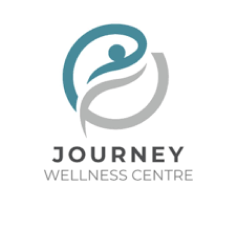
This Wednesday, the world commemorates the UN Day for the Elimination of Violence against Women. As such, we thought it fitting to bring your awareness to the high rates of domestic violence within South Africa. This, coupled with South Africa’s high addiction rates, can lead to miserable and nasty outcomes. Domestic violence occurs in many forms which can range from physical abuse, violence, intimidation, verbal abuse to sexual harassment and abuse. This usually occurs between partners or family members, within a household. Domestic violence does not always have to be perceivably aggressive; manipulation and emotional blackmail also form part of this abuse.

The perpetrators of domestic violence are usually family members that have issues with control and power. Substance consumption and abuse exacerbate these issues. According to the World Health Organisation over 30% of women who have been in a relationship state, they have suffered from some form of physical and/or sexual abuse. These figures are even more alarming when one considers that many women do not speak about the abuse they have faced. Psychological blackmail causes many women into thinking that men have the right to demand sex when, in fact, that is rape. Women are also perpetrators of domestic violence and abuse. Children are often the victims of the abuse carried out by women. Abuse in the home can take on many forms, and the presence of substances only make this more troublesome.
These issues are often intertwined with substance abuse. Again, according to the WHO, around 50% of men accused of killing their spouses were drunk when they committed the crime. The reason for this could be that substances promote loss of control and decreased rational thought and logic.

When an individual is on a substance, they tend to be reactive with minimal provocation, as opposed to when they are sober. This can often be marked by periods of remorse when the abuser promises never to hurt the victim again. Abuse and addiction have a lot in common. Once the alcohol wears off ,the violence and anger may decrease. Still, like addiction, the impulse to abuse and control returns, and the toxic cycle continues.
When substance abuse enters into the home dynamic, it puts a strain on all the relationships within the family. Co-dependency, lies, cheating and abuse enter into the house and create tension between spouses and children. Substances cause violence, anger and irritability, and if you are abusing drugs and alcohol, you are putting your family at physical and psychological risk.
Often there is a “code of silence” in a home marred with addiction and domestic abuse. The victims are either too scared to speak out or are shamed into keeping silent. There is more danger in keeping quiet than there is in speaking to someone about these issues. It can be someone close to you that you trust or a professional body. If domestic abuse is left unchecked and is not dealt with the victims in the home can suffer from long-term adverse effects.
Trauma and past experiences also have a lot to do with domestic violence and addiction. For many addicts, domestic abuse is something which they are familiar with.

Many addicts have been victims of domestic abuse themselves or any other forms of abuse for that matter. It is often behaviour that is learned over the decades, that does not get resolved. Other co-occurring illnesses such as anxiety, depression and schizophrenia that have not been managed or treated can also worsen the violent or abusive tendencies present in a person.
The longer one goes without addressing their experience of violence or trauma, the worse the effects of this will become. Abuse is a sign of weakness, fear and insecurity. At Journey we create a safe space for people who have suffered from trauma and as a result have moved further into the grips of addiction. We see the way out, and we want to walk that journey with you.

We believe that getting to the root cause of addiction and living a life of sobriety will bring about positive change within family dynamics. Contact us for more information on how we can help you or your loved one onto the path of sobriety and onto their next, beautiful journey.

